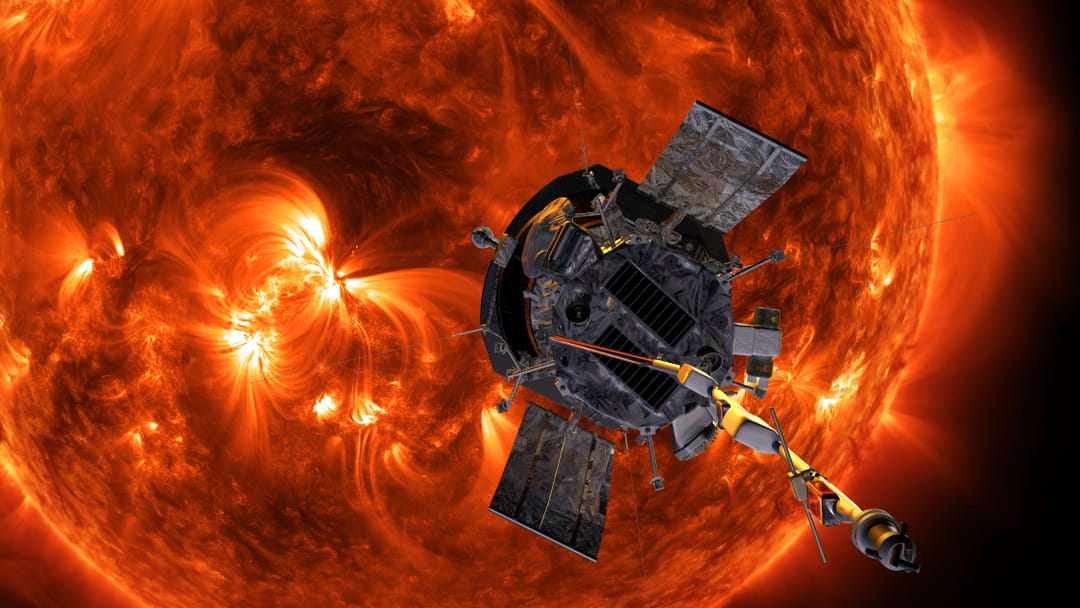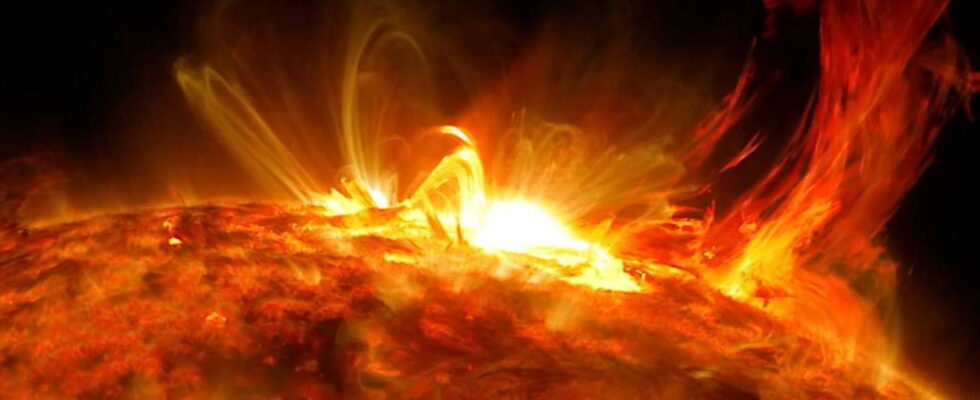NASA has successfully completed a “bold” mission by approaching the Sun more closely. A new record has been set.
Getting as close as possible to the Sun is one of NASA’s objectives. It thus sent a solar probe named “Parker” to make the record approach. The device achieved this on December 24 but was only able to transmit a signal two days later due to its proximity to the Sun. The probe was equipped with a carbon shield that resists extreme temperatures: they rose up to 980 degrees during its journey to the Sun.
This rapprochement made it possible to collect information on the solar corona, the outer part of the Sun’s atmosphere, in particular on its temperature, its magnetic field and even its composition. The solar corona can be up to 300 times hotter than the surface of the Sun, or up to 1 million degrees. “By studying the sun closely, we can better understand its impacts throughout our solar system (…) as well as the functioning of stars across the universe to help us in our search for habitable worlds beyond of our home planet,” explained Nicky Fox, NASA’s director of science missions, in a press release.
This mission also makes it possible to study the solar wind, a constant flow of charged particles springing from the corona. These particles in contact with the magnetic field create dazzling auroras in the sky. “This is an example of NASA’s bold missions, accomplishing something no one has ever done before to answer long-standing questions about our universe,” said in another press release Arik Posner, Parker Solar Probe program scientist.

It is the first probe to go this close to the Sun, 6.1 million kilometers away, at a speed of 690,000 kilometers per hour. Never before has humanity come so close to its star. In 2023, the probe had approached to within 8.5 million kilometers. Although this new distance may seem immense, it is minimal on the scale of the solar system. “We’re 93 million kilometers from the Sun, so if I put the Sun and Earth one meter apart, the Parker Solar Probe is 7 centimeters from the Sun. So it’s close,” Nicky Fox told the BBC.
New close passages of the Sun, at approximately the same distance, are planned for March 22 and June 19. The Parker Probe was launched in 2018 on a seven-year mission to deepen our understanding of the Sun and help predict events that could affect life on Earth.
